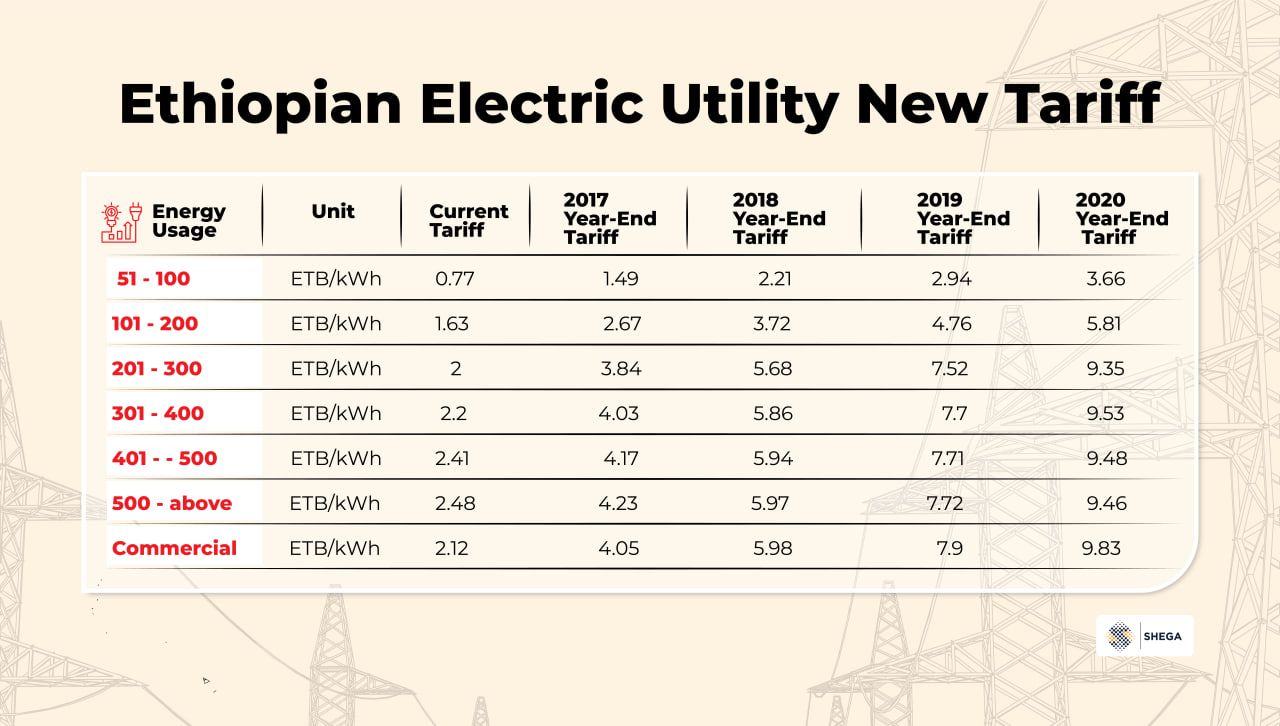Progress for 0 ad


Etenat Awol
Addis Ababa, Ethiopia

The Ethiopian Electric Utility has announced a rolling increase in power tariffs over the next four years as part of a comprehensive power sector reform. Quarterly increments averaging 10% will be progressively applied, with the first round slated for next month. This will result in EEU customers facing an average power utility cost increase of 400% by 2028.
Shiferaw Teilia (Eng), CEO of EEU, unveiled the new tariffs, which will be applied discriminately based on daily consumption rates, at Nib Bank’s headquarters on Wednesday morning.
“We have to recover our costs,” he noted. “Our infrastructure is sourced from the global market.”
The CEO indicated the need to maintain competitive prices for financial health, emphasizing how the adjusted rates still remain significantly less than neighboring Kenya. He expects the new strategy to boost EEU’s financial stability.
“Our goal is to stimulate investment and foster competition,” Shiferaw noted.
Households that use less than 50 kilowatt hours (kWH) at 0.27 birr will see their tariffs climb to 1.56 birr as the four-year program is completed by 2027/28. Per capita electricity consumption is 140 kWh per year in Ethiopia, which is only 5 percent of the global average of 33,131 kWh.
While households who consume more than 500 kWH will face one of the highest increments of 18% by next month, the 282.3%% increment at the end of the four years will likely be more daunting.

Despite the maintenance of subsidies of nearly 75% for households at the lowest power consumption level, their fees will still increase nearly sixfold at the end of the reform. No subsidies will be extended to households consuming more than 400 kWh.
General business will also be subjected to significant increments as rates will shoot up from around 2.12 birr currently to nearly 10 birr by the end of the reform.
A four-year electricity tariff adjustment plan as part of realizing cost recovery targets in the power sector is one of the key reforms agreed to as Ethiopia accepted the International Monetary Fund’s (IMF) prescribed program in late July. The authorities are committed to power sector reforms backed by $1.6 billion in World Bank project lending for transmission and distribution investment to improve access to electricity.
While EEU has indicated plans to provide electricity access to nearly 7.8 million households by the end of 2030, only around half of Ethiopians currently have access to electricity.
Concerns about mounting inflation rates, which have worsened following the floating of the Ethiopian birr, are likely not allayed by the tariff announcements. New taxes and increased rates for existing levies will also likely contribute to the economic concerns of citizens.
Last month, Ethiopia’s Immigration and Citizenship Service (ICS) updated its passport issuance fees. The new premium service aims to provide a more efficient solution for obtaining travel documents to those willing to pay extra. However, the revised urgent issuance fee represents a 500% increase from the previous 5,000-birr rate, while the standard passport issuance and renewal fees have increased by 150% from the previous 2,000-birr.